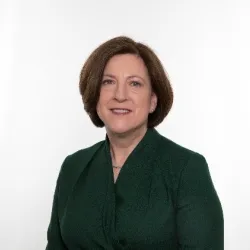FMI and Fintech: Oversight and Innovation in Payments and Settlements 2023
FMI and Fintech: Oversight and Innovation in Payments and Settlements
FMI and Fintech: Oversight and Innovation in Payments and Settlements
March 13-16
Live Content sessions held: 8am–12pm (EDT) | 1pm–5pm (GMT) | 8pm–12am (SGT)
Chair: Richard Heckinger
- What are the implications of CBDCs for payments and settlements?
- Where do the opportunities lie to improve payments notably cross-border?
- How can regtech and suptech add value to oversight?
In 2023, advances in financial technology continue to re-draw the oversight landscape. CBDCs, crypto assets and stablecoins are disrupting traditional payments and settlements. Cross-border linkages are being developed, creating new flows of funds, benefiting economies but also creating new exposures. Technology and data management offer new opportunities for overseers to understand Financial Market Infrastructures (FMI) and market interlinkages. As ever, the challenge for overseers is to strike a balance between promoting innovation and protecting the financial system. They know that while innovation can lead to greater efficiency in financial systems, it will also create new risks.
This course is designed to equip central bankers to meet these challenges. Each day will feature three hours of expert-led Live Content to ensure a range of perspectives on key topics. The course chair will ensure participants have opportunities to network throughout the course, with time set aside for a workshop on implementing recommendations, to maximise the opportunities to share and learn.
Payments 2023 Agenda
Two weeks prior to your training course you will be emailed access to our content hub with course materials, including a trial to Central Banking if you are not already subscribed. There will be a combination of articles, reports and presentations that will contribute to two hours of preparation time for the live content. Presentations for the sessions will also be held here subject to the speaker approval.
13:00 – 13:15
FMI and fintech: course introduction + welcome
Course introduction session led by the chair
13:00 - 13:30
- Introductions and welcome from the chairperson
-
Overview of the training course
-
Discussion of the delegate expectations
Clair Mills
Director of strategic change and operations for markets, banking and payments
Bank of England
Clair Mills is the Director of Strategic Change and Operations for the Markets, Banking and Payments Deputy Governorship, at the Bank of England, and is responsible for middle and back office operations, which includes delivery of the Markets, Banking and Payments Operations and Data Strategy, Budget, Operational Resilience and Risk and the Investment and Change Portfolio. Clair has over 20 years’ extensive financial services experience operating at board level and leading successful strategic and transformational change in a number of complex organisations, having started her career in the Building Society and Retail Banking sector, before moving into Operational and Technological Change Management and Consultancy. Clair joined the Financial Services Authority in 2011 to lead the Internal Twin Peaks programme transition to the PRA and FCA regulatory model, moving across to the Bank of England with the PRA becoming the Chief Operating Officer in the PRA in 2018. In her current role, as well as providing the leadership, management and vision necessary to support the business and to ensure that the proper operational controls, administrative and reporting procedures, and people systems are in place, Clair is also responsible for leading the area’s extensive project portfolio, helping translate business and policy vision into deliverable change programmes, this includes giving key note speeches both in the UK and internationally on topics such as Financial and Regulatory Technology (FinTech/RegTech) and how Central Banks and regulators can take advantage of the advances in technology in the work we do.
13:15 – 14:15
Impact of technology on the payments framework: key challenges in focus
12:15 - 13:15
-
The state of the art of financial technology in 2023
-
Key forces, trends and dynamics shaping financial market innovation
-
Unavoidable risks, critical challenges and emerging opportunities
-
Discussion: how do central banks need to change to make the most of fintech?
Richard Heckinger is a financial markets management professional. He retired in 2015 as Vice President and Senior Policy Advisor, Financial Markets Group, at the Federal Reserve Bank of Chicago. He started his career in financial markets at the Chicago Board Options Exchange in 1973, with subsequent executive positions at the Montreal (Stock) Exchange, the Chicago Mercantile Exchange as Clearing House Manager, and as Vice President, Financial Marketing, with a four-year posting in its London Representative Office. Following that, he was Chief Operating Officer and Council (Board) Member of the Stock Exchange of Hong Kong, and eventually Chief Executive and Board Member of its subsidiary, the Hong Kong Securities Clearing Corporation. After six years in Hong Kong he joined State Street Corp. in Boston as Senior Vice President, Global Operations. Other experience includes Head of the U.S. Representative Office for Deutsche Börse AG and Eurex. He has served on international committees, including a Federal Reserve Bank of New York working group, the OTC Derivatives Regulators’ Forum, SWIFT, and the International Securities Services Association (ISSA). Presently, he is a Contributing Editor to the Central Banking Journal, Associate Editor of the Journal of Financial Market Infrastructure and a Member of the Editorial Advisory Board of the Global Commodities Applied Research Digest. He earned an M.Phil. degree in Economics from the London School of Economics, a B.A. degree in Mathematics from the Illinois State University, is a U.S. Army (Infantry) veteran and completed the Advanced Management Course at the University of Chicago.
14:15 – 14:30
Break
12:45 - 13:00
14:30 – 15:30
CBDCs, stablecoins and crypto assets: what are the implications for payments and settlements?
14:00 - 14:45
-
Differences and overlaps between privately issued crypto assets and central bank digital currencies (CBDC)
-
Building blocks of effective regulatory and supervisory frameworks for privately issued crypto assets
-
Implications of CBDCs for financial stability, payments and settlements
-
Discussion: do CBDCs represent a realistic and desirable goal?
Adolfo Sarmiento is Head of Economic Policy and Markets, advising to the board at the Central Bank of Uruguay, he is responsible for the Monetary Policy implementation, and he’s also involved in FinTech specially in the CBDC Projects. He holds a degree in Economics of the University of the Republic of Uruguay, a Master in Applied Macroeconomics of the Catholic University of Chile and a PhD in Economics for the Catholic University of Argentina.
15:30 – 16:00
Networking break
15:30 - 16:00
16:00 – 17:00
How will big tech, DLT and digital money affect financial market infrastructure?
13:00 - 13:45
-
Financial market infrastructure: a guide to the new normal
-
Overview of key disruptive forces and dynamics challenging FMIs
-
How are FMIs changing to utilise fintech?
Dr Settor Kwabla Amediku is currently the Chairperson of the Association of African Central Banks (AACB) Payment Systems Integration Working Group and also Chairperson of the Financial Inclusion and Data Working Group of the Alliance for Financial Inclusion, an international body advancing inclusive finance. He is also the AACB member of the Advisory Board of the Africa Financial Industry Summit initiative. Settor consulted for United Nations/ World Trade Organisation (WTO) and International Trade Centre (ITC) Switzerland, on Financial Sector Development and Trade in Financial Services and Development and was also engaged by the International Monetary Fund (IMF) as a short term expert in 2018 . He reviewed and proposed measures for the development of the Liberian payment systems.
He has over 26 years of experience in central banking as an economist and accountant specialising in Monetary Policy, Financial Services and Payment Systems development, Banking operations, Banking Supervision and Financial Stability. In 2015, Settor set up the Payment Systems Department and also put in place all the structures including facilitation of the passage of the Electronic Money Issuers and Agent Guidelines as well as the Payment Systems and Services Act 2019 (Act987).
Settor has also been instrumental in the establishment of the Financial Stability Department of the Bank of Ghana and in addition introduced various metrics that continue to guide the Monetary Policy Committee on the assessment of the banking sector. He is a Fellow of Association of Chartered Certified Accountant, United Kingdom and a member of the Institute of Chartered Accountants (Ghana). Settor served on the Technical and Research Committee of the Institute for two terms and on the Professional Standards and Ethics Committee of the Institute for a year.
He was educated in Ghana and the United Kingdom and holds Master of Philosophy in Monetary Economics and Finance from the Glasgow University, Scotland with a joint award as the best student in Monetary Economics in 2004. He took his doctoral degree in Finance from the SMC University, Switzerland.
13:00 – 14:00
Evolution of RegTech: Trends in 2023 and beyond
13:00 - 13:30
-
Emergence of new services and actors
-
The impact of tech on oversite framework
-
Consequences for regulatory approaches
-
The global perspective
-
Outlook
14:00 – 14:15
Break
12:45 - 13:00
14:15 – 15:15
Making real-time payments a reality: an overseers’ guide
13:00 - 13:30
-
What is the distinction between wholesale and retail payments?
-
What are the different approaches central banks can take for real time payments?
-
Challenges that have arisen as more and more central banks create real-time payments
-
Opportunities from central bank experiences
Patrick Papsdorf is Head of Section of Payments Oversight in the Directorate General Payments and Market Infrastructure (DG-MIP) at the European Central Bank (ECB). His area of responsibility comprises the oversight of payment systems and schemes, and encompasses the assessment of emerging risks and developments in the payments ecosystem, including aspects cyber resilience and financial innovation. Prior to this, Mr Papsdorf was Adviser to DG-MIP's Market Infrastructure Management Division, where he was in charge of analytical and compliance matters, and contributed to the operations and development of key market infrastructures.
Earlier positions include a commercial bank, the Deutsche Bundesbank and the Federal Reserve Bank of New York. Mr Papsdorf holds the German recognition as bank officer, a bachelor's degree in business management from the University of the Deutsche Bundesbank and a master in global management.
15:15 – 15:45
Networking break
15:30 - 16:00
15:45 – 16:45
Key Global trends in Fintech: Case Study from Ghana
13:00 - 13:30
Kwame Oppong is the Head of Fintech and Innovation at Bank of Ghana.
His background spans Technology, Digital Financial Services (DFS), Public Policy, and Regulation. He has consulted for several governments, public sector institutions, international development organizations and private corporations globally.
Prior to joining the Bank, Kwame worked with CGAP (World Bank Group), Millicom, HP (now HP EB) and other organizations in the banking, housing finance and health insurance industries.
He is a passionate advocate for financial inclusion, innovation, and the development of digital economies.
13:00 – 14:00
Fintech and innovation: sandboxes, incubators and accelerators
13:00 - 13:30
-
Sandboxes, incubators and accelerators: a central bankers guide
-
Role and functions in innovation strategies
-
Tips for helping innovation comply with legal and regulatory requirements
-
Issues for funding resourcing cross-jurisdictional cooperation
Agnes Beatrice Gambill West is a Visiting Senior Research Fellow at the Mercatus Center at George Mason University.
Agnes' research focuses on decentralized finance (DeFi) regulation, lowering barriers to innovation, the role of surveillance and privacy in DeFi payment transactions, the freedom to transact, and novel models of corporate governance for decentralized autonomous organizations (DAOs).
Prior to joining Mercatus, Agnes worked for Appalachian State University as an assistant professor and as an attorney-advisor for startups. Agnes is Co-Chair of the North Carolina Blockchain Initiative, is an appointee to the North Carolina Innovation Council, and serves on the Business and Consumer Payments Advisory Council for the Federal Reserve Bank of Richmond. She has experience working as a proprietary trader and is the co-founder of an Ethereum-based blockchain payments company. Her research has been published in the American Intellectual Property Law Association's (AIPLA) Quarterly Journal.
Agnes received a JD from University of North Carolina School of Law, an LLM from Duke University School of Law, and an MSc from Oxford University.
14:00 – 14:15
Break
12:45 - 13:00
14:15 – 15:15
Introducing a CBDC - how to apply advanced analytics and simulations to understand the opportunities and risks
13:00 - 13:30
-
State of play - CBDC and Digital Money
-
CBDC Simulation - overview and key applications for Central Banks
-
Demonstration - CBDC Simulation in action
15:15 – 15:45
Networking break
15:30 - 16:00
15:45 – 16:45
The Eastern Caribbean - Pioneers of CBDCs
13:00 - 13:30
-
Dcash – where are we now and what went wrong?
-
What can we learn from the launch?
Ms Sharmyn Powell has been employed at the Eastern Caribbean Central Bank for over 25 years and currently holds the position of Chief Risk Officer. She leads the Office of Corporate Strategy and Risk Management with responsibility for Enterprise Risk Management, Compliance, Strategic Plan development and monitoring and Business Continuity Management.
Prior to assuming this role, she served in various capacities at the Bank including, Deputy Director, Accounting Department, Director, Currency Management Department and Director, Support Services Management Department. She is the Chairperson of the Bank’s Fintech Working Group, which is leading the implementation of the DCash Pilot Project for the issuance of a block-chain based digital version of the EC Currency.
Ms Powell is a Certified Accountant (ACCA), and also carries the designations of Chartered Director (C. Dir) and Audit Committee Certified (A.C.C).
13:00 – 14:00
Applications of Simulation in FMI Innovation
13:00 - 13:30
- Simulation & Analytics in FMI Lifecycle
Simulation & Analytics in CBDC Lifecycle
Examples of Technology in Action
Amanah is a Data Scientist at FNA and serves as the primary client-facing Data Scientist in the Asia-Pacific region. She is the lead data scientist developing and delivering FNA’s agent-based CBDC Simulator to central banks and financial institutions. She holds a Ph.D. in Computational Finance from University College London. Her main research interest is systemic risk, with a particular focus on the application of complex networks to the study of financial stability. Prior to joining FNA, she was affiliated with the Bank of England and the International Monetary Fund.
14:00 – 14:15
Break
12:45 - 13:00
14:15 – 15:15
The risks and benefits of cross-border interoperability
13:00 - 13:30
-
The role of SWIFT in establishing standards the inter-operability of payment systems
-
Making international payments frictionless
-
The challenges of clearing
Carlo looks after Market Infrastructures globally within SWIFT’s Products group, recently focusing on the integration with cross-border instant payments. Previously, Carlo managed the Payments Standards development, supporting the evolution from the SWIFT-proprietary standards towards ISO 20022, and worked in the SWIFT Corporate team, responsible for corporate connectivity to the SWIFT network. He represented SWIFT in international organisations, such as ISO, UN/CEFACT and the EPC. Before SWIFT, he worked in electronic banking at KBC Bank and participated in the creation of the Belgian domestic Isabel-platform.
Carlo Palmers has a master degree computer science from the University of Louvain, Belgium.
15:15 – 16:15
FMI and Fintech: closing remarks and delegate action plans
Concluding session led by the chair
13:00 - 13:30
-
Summary of the course
-
Discussion of the observed trends and case studies
-
Application of learning points in the delegates’ home organisations
-
Preparation of action points
Richard Heckinger is a financial markets management professional. He retired in 2015 as Vice President and Senior Policy Advisor, Financial Markets Group, at the Federal Reserve Bank of Chicago. He started his career in financial markets at the Chicago Board Options Exchange in 1973, with subsequent executive positions at the Montreal (Stock) Exchange, the Chicago Mercantile Exchange as Clearing House Manager, and as Vice President, Financial Marketing, with a four-year posting in its London Representative Office. Following that, he was Chief Operating Officer and Council (Board) Member of the Stock Exchange of Hong Kong, and eventually Chief Executive and Board Member of its subsidiary, the Hong Kong Securities Clearing Corporation. After six years in Hong Kong he joined State Street Corp. in Boston as Senior Vice President, Global Operations. Other experience includes Head of the U.S. Representative Office for Deutsche Börse AG and Eurex. He has served on international committees, including a Federal Reserve Bank of New York working group, the OTC Derivatives Regulators’ Forum, SWIFT, and the International Securities Services Association (ISSA). Presently, he is a Contributing Editor to the Central Banking Journal, Associate Editor of the Journal of Financial Market Infrastructure and a Member of the Editorial Advisory Board of the Global Commodities Applied Research Digest. He earned an M.Phil. degree in Economics from the London School of Economics, a B.A. degree in Mathematics from the Illinois State University, is a U.S. Army (Infantry) veteran and completed the Advanced Management Course at the University of Chicago.
Learning outcomes
At the conclusion of the training, participants will be able to:
- Understand how central bankers need to adapt the way they work, manage and lead in the current volatile market
- Gain insights into strategic approaches to creating a culture of diversity and inclusion, and greening the central bank
- Discover how branding can create a strong, positive perception of a central bank to its stakeholders
- Understand the implications of technological change for policy and operations
- Identify the critical factors for attracting, nurturing and retaining talent











